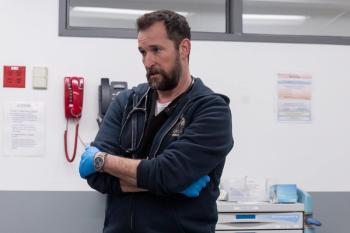
Dr. Leslie Kantor Examines the Potential “Twindemic” Impact on Health Systems
The possibility of hospitals and health systems being hit by both COVID-19 and flu hospitalizations makes it crucial people get vaccinated against both, said Leslie Kantor, PhD, MPH, chair and professor of the Department of Urban-Global Public Health, Rutgers School of Public Health.
In some parts of the country, hospitals and health systems are well prepared to address a surge in flu cases on top of COVID-19 ones; however, in other areas, the staff is burned out from COVID-19 surges, said Leslie Kantor, PhD, MPH, chair and professor of the Department of Urban-Global Public Health, Rutgers School of Public Health. As a result, vaccination against both COVID-19 and influenza is crucial.
Transcript
COVID-19 and its various surges in cases have tested the capacity of hospitals and health systems over the last 20 months: does that mean they are better prepared to face added flu hospitalizations or burnt out and less capable?
Healthcare systems around the country are really in different situations. For some healthcare systems, in areas where there have been very big surges due to the Delta variant, they're still dealing with overfilled hospitals, a lot of staff burnout. While in other places, there has been more of a chance to take a little bit of a break and prepare for an upcoming potential flu and COVID season.
One thing though, that all health systems are facing around this country is a shortage in many healthcare roles, particularly nursing. So, one of the outcomes of this very tough COVID pandemic is that some people really have decided that healthcare is too stressful. So, all around the country, there's a lot of demand for people to come and work in healthcare.
The flu season peak tends to change year to year, and with COVID-19, we’ve seen surges come and go. How do hospitals and health systems factor these uncertainties into their preparations?
In the United States, the flu season really does begin officially in October, but tends to really get going in those winter months — November, December, January, February — when people are more inside in the colder climates. And flu can spread very, very rapidly.
Even though the peak shifts, what we all need to remember, starting now, is if we haven't gotten our flu vaccine yet, now's the time. It's not too early. It takes about two weeks until you're actually covered, and we are now officially in flu season.
And we all need to remember that when we have any kinds of symptoms, we could, in fact, have flu or we could have COVID, and there is testing and treatment available for both.





























































































